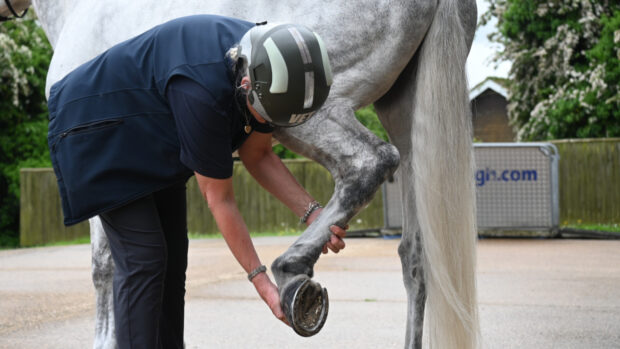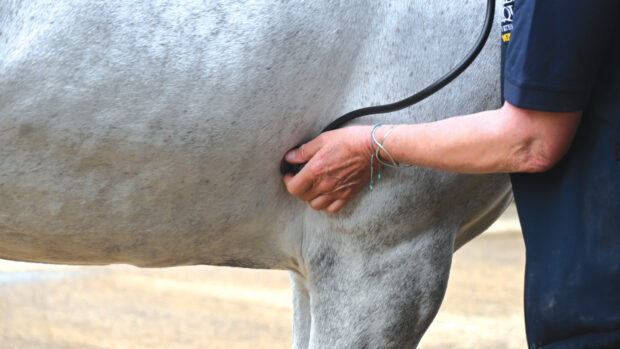Vet shortages in the UK remain a concern as a “disastrous” Brexit and challenges from Covid add more pressure.
The topic was recently debated in the House of Lords, during which it was asked what discussions had taken place between the Government and members of the veterinary profession about the availability of qualified vet personnel following Brexit.
In June 2019, H&H reported that the migration advisory committee, a public body that advises the Home Office on immigration issues, had recommended vets be restored to the Government’s shortage occupation list, following a joint submission from the Royal College of Veterinary Surgeons (RCVS) and the British Veterinary Association (BVA) (news, 6 June 2019).
During the debate, Lord Wigley reported that since Brexit the number of EU-registered vets coming to work in the UK had fallen by 68%, from more than 1,132 in 2019 to 364 in 2021.
“Is this not yet another example of the total disaster that Brexit has been for the UK?” he asked.
Defra parliamentary under-secretary of state Lord Benyon said Government officials are in “regular contact” with the veterinary profession and Defra is working with stakeholders to understand reasons for the shortage and develop “potential solutions”.
Lord Trees said reasons for the current shortage are “complex” but involve the “three Rs” – recruitment, retention and encouraging returners back to work after career breaks. He asked Lord Benyon to press the Government to raise core funding for vet students in the UK, which would “displace the need to take overseas students” and “immediately increase very substantially” the number of UK students undergoing vet training.
An RCVS spokesman told H&H workforce shortages are a “key challenge” facing the profession, which have been “exacerbated significantly” by the pandemic, Brexit and an increase in demand for veterinary services.
The number of vets joining the RCVS register declined from 2,782 in 2019 to 2,061 in 2021 and there has been an increase in vets leaving the register’s UK-practising category since 2018, either by leaving the register or moving to another category. As a result, the net number of vets joining the UK-practising category – the total number joining minus the number who have left – has fallen from 1,180 in 2019 to 269 in 2021.
“There has been a decrease in new UK-practising registrants from overseas, particularly from the EU, over the past four years. In 2018, 53% of new registrants were EU-qualified, but in 2021 this was 19%. This reduction in new registrants from the EU explains much of the fall in overall numbers of new registrants,” said the RCVS spokesman.
“There is no silver bullet for solving the workforce crisis and the ongoing impacts of Covid and Brexit. There have been recent developments that will increase the number of UK veterinary graduates, with four new vet schools on the horizon.
“However, we agree with Lord Trees that there will need to be significant investment by the Government in UK veterinary education if we are to ensure domestic capacity and resilience.”
British Equine Veterinary Association (BEVA) president Huw Griffiths told H&H the organisation is aligned with the RCVS and the BVA in identifying potential shortfalls of veterinary provision, and is leading on the sector-specific challenges involving equine vets and “therefore equine welfare”.
“Manpower can be relocated in the short-term but globally a long-term strategy is required to ensure adequate provision of care for our equine patients,” he said, adding that BEVA acknowledges the “three Rs” as key areas for focus and strategic improvement.
BEVA will launch a recruitment and retention survey next month for its membership, to build on the work of Renate Weller, who has researched factors affecting this area. Mr Griffiths added that BEVA will also be working with Amy Grice, a “world leader” in the understanding of the generations of equine vets, who has undertaken studies on the topic and will attend the BEVA congress in September.
“We are wholeheartedly committed to supporting our membership, enabling them to continue to provide world-class care for equines. The future will inevitably be different, it is our role to be malleable, and provide support and resources that reflect the needs of the professionals of the future,” added Mr Griffiths.
H&H vet expert Karen Coumbe, who works for Bell Equine, told H&H that although the horse world may have been “a little protected” from vet shortages compared to small-animal vet practice, this is changing.
“There are alarming statistics showing vets are not staying in the profession as long as they used to. There are many reasons for that, plus there aren’t the same number of vets coming over from overseas. And there are now more female vets, so more vets take time out of the workplace with parental leave,” she said.
“I’ve been very lucky, but generally the view is the public have higher expectations than previously, so if there aren’t enough vets to go round, then those who are available become less effective and burnt out. This results in a perfect storm of job dissatisfaction from vets and their clients.”
You might also be interested in:

‘A serious and imminent threat to the equine industry’: owners called to action

Mandatory equine herpes vaccinations for sport horses under consideration

Subscribe to Horse & Hound magazine today – and enjoy unlimited website access all year round
Horse & Hound magazine, out every Thursday, is packed with all the latest news and reports, as well as interviews, specials, nostalgia, vet and training advice. Find how you can enjoy the magazine delivered to your door every week, plus options to upgrade your subscription to access our online service that brings you breaking news and reports as well as other benefits.




